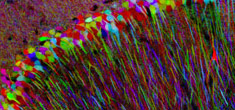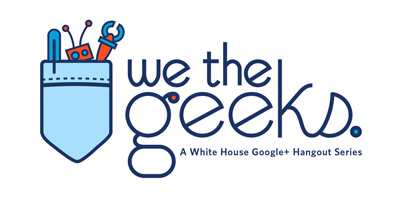21st Century Grand Challenges
Grand Challenges are ambitious but achievable goals that harness science, technology, and innovation to solve important national or global problems and that have the potential to capture the public’s imagination.
Grand Challenges are an element of the President’s Strategy for American Innovation because they help catalyze breakthroughs that advance national priorities. On April 2, 2013, President Obama called on companies, research universities, foundations, and philanthropists to join him in identifying and pursuing the Grand Challenges of the 21st century.
Grand Challenges Can:
- Help create the industries and jobs of the future;
- Expand the frontiers of human knowledge about ourselves and the world around us;
- Help tackle important problems related to energy, health, education, the environment, national security, and global development; and
- Serve as a “North Star” for collaboration between the public and private sectors.
Current Grand Challenges

NIH, DARPA, and NSF’s BRAIN Initiative, to revolutionize our understanding of the human mind and uncover new ways to treat, prevent, and cure brain disorders like Alzheimer’s, schizophrenia, autism, epilepsy, and traumatic brain injury

DOE’s SunShot Grand Challenge, to make solar energy cost competitive with coal by the end of the decade, and EV Everywhere Grand Challenge, to make electric vehicles that are as affordable as today's gasoline-powered vehicles within the next 10 years.

NASA’s Asteroid Grand Challenge, to find all asteroid threats to human populations and know what to do about them.

USAID’s Grand Challenges for Development, including Saving Lives at Birth that catalyzes groundbreaking prevention and treatment approaches for pregnant women and newborns in poor, low resource communities
All Hands on Deck

In addition to Federal investments, there are a growing number of companies, foundations, philanthropists, and research universities that are interested in pursuing Grand Challenges. The Gates Foundation has made commitments to Grand Challenges in Global Health. Duke University, Olin, and the University of Southern California have partnered with the National Academy of Engineering in a Grand Challenge Scholars Program that enables students to organize research and learning around an engineering Grand Challenge. IBM has driven advances in computing and artificial intelligence with Watson beating Ken Jennings at JEOPARDY! and Deep Blue beating Kasporov at Chess. Google is making significant investments in self-driving cars, building on the technical advances stimulated by the DARPA Grand Challenge.
How to Get Involved:
- Philanthropists and foundations can organize some or all of their giving around Grand Challenges.
- Universities can create and launch learning opportunities, research initiatives, and capital campaigns to focus on ambitious Grand Challenge goals.
- Companies can identify Grand Challenge goals they want to pursue.
- Companies, foundations and other institutions can sponsor major incentive prizes designed to address a Grand Challenge. For example, Qualcomm is sponsoring a $10 million dollar prize for the development of a portable wireless device that can allow patients to rapidly and accurately diagnose diseases at home.
We the Geeks
“We the Geeks" is a new series of Google+ Hangouts to highlight the future of science, technology, and innovation here in the United States. Topics such as commercial space exploration, science, technology, engineering, and math (STEM) education, turning science fiction to science fact, and others will be discussed with Administration officials and key private sector contributors.
To ask a question and join the conversation on Twitter use the hashtag #wethegeeks.
For more information about the Administration’s Grand Challenges and to get involved, email the White House Office of Science and Technology Policy at challenges@ostp.gov.

